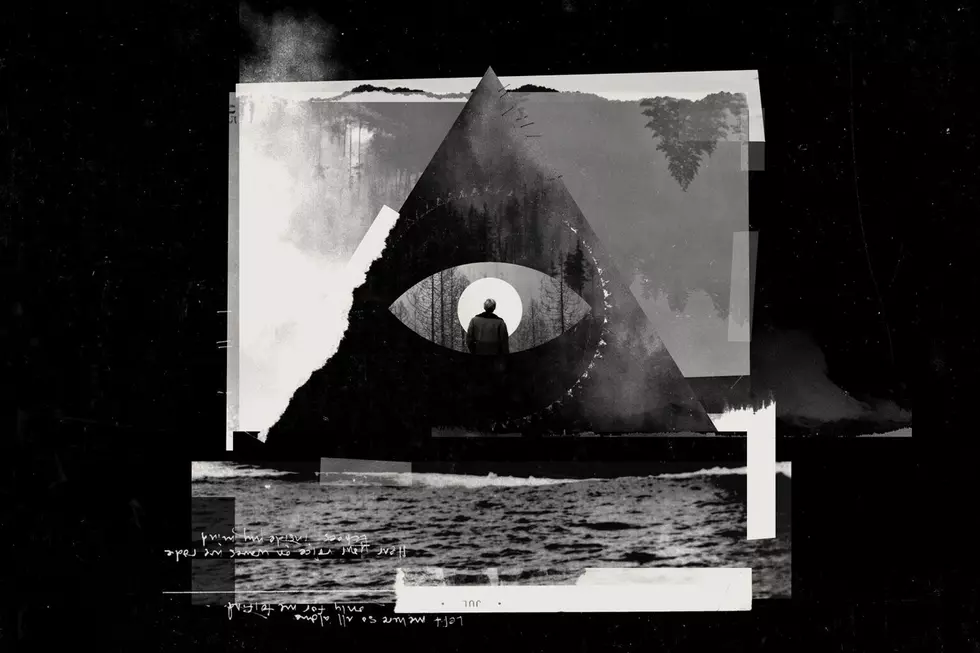
23 Years Ago: Alice in Chains Dig Deep With ‘Dirt’
As even the most casual fan knows, heroin has cast a long shadow over rock music and played a significant role in the making of a slew of classic albums. But where so many artists have flirted with glamorizing the drug's powerful allure, Alice in Chains addressed the harrowing realities of addiction with unflinching candor on their 1992 sophomore full-length, Dirt. A downtempo exercise in morbidity and despair, Dirt also cemented the Seattle quartet's status in the alt-grunge major leagues after initially being marketed to a metal audience in the first phase of its career.
Working once again with producer Dave Jerden (Jane's Addiction, Red Hot Chili Peppers), Alice in Chains had taken steps forward from their debut album Facelift in every aspect of their sound: songwriting, execution, vibe, production, etc. The band's principle songwriters – guitarist Jerry Cantrell and late frontman Layne Stayley – also proved to be rather adept at weaving their own personal demons into a broader awareness of the human condition. Stayley explicitly addresses heroin on songs like "Junkhead," "God Smack" and "Sickman," but the band are remarkably convincing on the songs that tackle depression, suicide, relationships and general mortality as well.
As a case in point for just how developed Alice In Chains' songwriting had become by this point, Dirt arguably features one of the most emotionally affecting Vietnam war songs in the history of rock – no small feat from a bunch of hard-partying, drug-addled neophyte rock stars one generation removed from the experience. In writing the song, Cantrell channeled the dysfunction of his relationship with his father, a Vietnam veteran who was known to his peers in the service as "Rooster," also the title of the song. Somehow, Cantrell's lyrics and Stayley's delivery paint a vibrant, haunting picture of war through another person's eyes, a profound demonstration of musical empathy that carries over throughout the rest of the album.
When Stayley sings "nothing better than a dealer who's high" on "Junk Head," there are obvious echoes of the Velvet Underground's 1967 classic "I'm Waiting for My Man." But in a departure from Lou Reed's take, Stayley's portrayal of a drug deal captures the dreadfulness eating away in the heart of its protagonist (presumably himself). As the album progresses, it conveys mounting helplessness in vivid detail with the various narrators lamenting their sense of imprisonment as they become engulfed from within. Meanwhile, it becomes abundantly clear that Cantrell had blossomed as a background vocalist while Stayley had begun to do the same as a guitarist. Together, Stayley and Cantrell thread their vocal parts into the rich, soaring harmonies that define the Alice In Chains sound to this day. (Not to be overlooked, drummer Sean Kinney once again proves on this album that drummers can rise above a merely functional role by being inventive, flashy, and tasteful all at the same time.)
The subject matter on Dirt takes on added poignancy in light of the fact that heroin ultimately killed Stayley and sidelined the band from touring almost 10 years before he passed away in 2002. (The band's appearance on the 1993 edition of Lollapalooza in support of Dirt would mark its final extended run of U.S. dates with Stayley. Bassist Mike Starr, who was dismissed from the band following the release of the album, died of a prescription-drug overdose in 2011.) At the same time, even within its primary tone of resigned desperation, Dirt also crackles with a thirst for life that still sounds affirming over 20 years later. Stayley eventually succumbed to what he sang about on this album, but for 57 minutes of unrelenting, artfully rendered gloom, he stood tall -- at least creatively speaking -- against everything he couldn't muster the strength to kick.
Worst to First: Every Alice in Chains Album Ranked
More From Diffuser.fm









